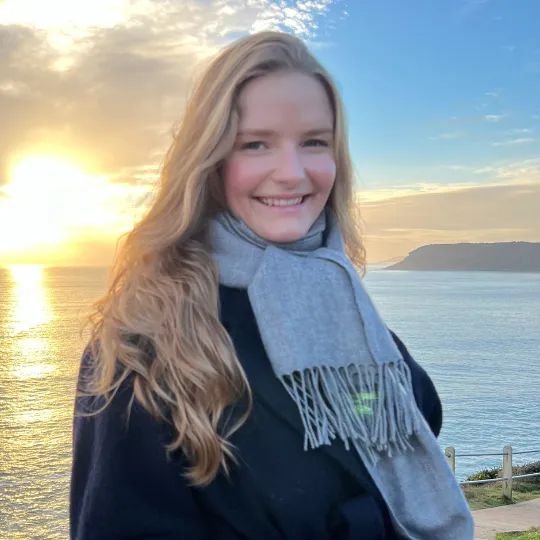
Dr Margie Cheesman
Lecturer in Digital Economy
- Research Affiliate at the Minderoo Centre for Technology and Democracy, University of Cambridge
Pronouns
she/her
Biography
Margie is an anthropologist specialising in the social and political dimensions of emerging technology.
Her work examines how technologies like blockchain are designed, used, and adapted in sensitive environments. Through research across Jordan, Kenya, Germany, and the UK, she investigates humanitarian aid programmes, migration management systems, and financial inclusion initiatives, uncovering how technological promises translate into everyday practices.
Margie uses ethnographic methods to explore technological change through both grassroots and institutional perspectives. Her public interest work builds evidence to understand and challenge contemporary forms of inequality and exclusion. Current projects include:
- Blockchain and Aid: Margie's upcoming book offers the first comprehensive ethnography on blockchain's deployment in humanitarian crisis zones. A major human experiment with new financial technology reveals the profound priority clash between aid managers, frontline humanitarians, and refugees.
- Digital Sovereignty: Margie is co-Lead Investigator on an international research project analysing how emerging technologies reshape social and political boundaries. Funded by the Bosch Foundation, the project focused on digital IDs, migration management systems, and the vulnerable groups navigating them.
- The Digital Grey Zone: Digital platforms—from crypto to gig work—are creating new livelihood opportunities alongside emerging risks for low-income groups and non-citizens, operating in spaces that blur conventional economic arrangements. Margie's latest research and advocacy advances understandings of informal economic activity. This involves an Economy and Society special issue co-edited with Dr Andreas Hackl.
Margie completed her PhD at the Oxford Internet Institute in 2022. She has worked as Assistant Editor of the journal Big Data & Society and is a Research Affiliate at the University of Cambridge’s Minderoo Centre for Technology and Democracy. She is a member of research collectives such as the European Association of Anthropologists (EASA) Digital Anthropology and Anthropology of Economy networks, the Surveillance Studies Network (SSN), and STS-MigTec. Margie also works with Swansea Asylum Support and West London Welcome.
Research interests and PhD supervision
- Digital Anthropology
- Economic Anthropology
- Science and Technology Studies
- Migration/Critical Border Studies
- Humanitarianism/Development Studies
Teaching
Margie is currently Programme Lead for the Digital Economy MSc.
Margie’s teaching bridges macro and micro questions surrounding digital economies, from geopolitical to cultural considerations. She welcomes dissertation students interested in exploring the connections between digital technologies and social inequities, particularly through ethnographic and co-produced research methods.
Expertise and public engagement
Margie has led multiple open access reports investigating the risks and harms of digital innovations targeting low-income groups and non-citizens—for example, associated with digital currency experiments, biometric checks, and gig work platforms. Through press engagements and advocacy work with international organisations, policy and media networks (UN Special Rapporteur on Racism, Open Migration, Reuters, BBC, CNN), she has advanced critical agendas for research and action on digital rights.
Selected publications
- Cheesman, M., A. Martin & K Weitzberg (2025). 'The UK Brit Card: Progressive or Concerning?' LSE Blog.
- Cheesman, M. (2024). ‘Conjuring a Blockchain Pilot: Ignorance and Innovation in Humanitarian Aid’. Geopolitics, 1-28.
- Cheesman, M. & A. Hackl (2023). 'The Identity Issue: Digital Risks of Proxy IDs in Kenya's Online Economy'. UNHCR Innovation Service.
- Cheesman, M. (2022). 'Web3 and Communities at Risk: Myths and Problems with Current Experiments'. Minderoo Centre for Technology and Democracy, University of Cambridge.
- Cheesman, M. (2021). 'Self-sovereignty for refugees? The contested horizons of digital identity'. Geopolitics 27(1), 134-159.
Research

Centre for Digital Culture
The Centre for Digital Culture at King’s College London is an interdisciplinary research centre promoting research and debate on digital culture

Global Digital Cultures Research Group
do local practices of engagement with the digital circulate regionally and around the world, and how do they change during their travels? These are some of the questions that we ask in the Global Digital Cultures Research Group, approaching them from different disciplinary and methodological traditions, and focusing on different countries and regions, but also on global phenomena and their local articulations.
Events

Margie Cheesman: Mish Baraka: Blockchains in Refugee Aid
This online seminar by Dr Margie Cheesman will look at Blockchains in Refugee Aid
Please note: this event has passed.
Research

Centre for Digital Culture
The Centre for Digital Culture at King’s College London is an interdisciplinary research centre promoting research and debate on digital culture

Global Digital Cultures Research Group
do local practices of engagement with the digital circulate regionally and around the world, and how do they change during their travels? These are some of the questions that we ask in the Global Digital Cultures Research Group, approaching them from different disciplinary and methodological traditions, and focusing on different countries and regions, but also on global phenomena and their local articulations.
Events

Margie Cheesman: Mish Baraka: Blockchains in Refugee Aid
This online seminar by Dr Margie Cheesman will look at Blockchains in Refugee Aid
Please note: this event has passed.
